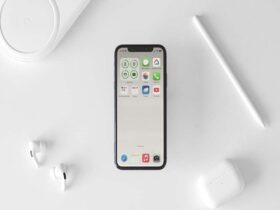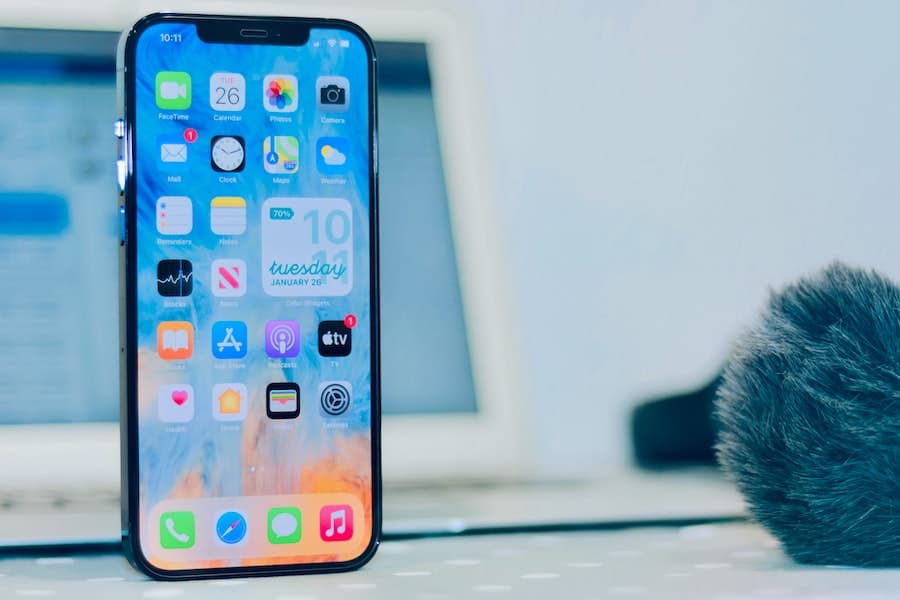Stress can take its toll on anyone, but for people who are sensitive to its effects, it can be particularly debilitating. A common side effect of stress is the sensation of being frozen in place. This feeling may come on suddenly or creep up on you gradually, but it can make everyday activities feel impossible to complete. If you’re prone to feeling frozen when stressed, these tips and tricks can help you get back into action quickly. Once you’ve recovered from your latest bout with stress, consider taking these steps as preventative measures that will ease future stressors rather than exacerbate them.
How To Turn Off Your iPhone 12 When Frozen
Breathe
When you’re feeling frozen, a good place to start is with the basics. When we’re stressed out, our breathing tends to get shallower and faster. This isn’t ideal because it doesn’t provide your body with all the oxygen it needs to function optimally. By slowing down and deepening your breathing, you can calm your body’s stress response. Deep breathing exercises can also help you get back in control of your thoughts and let go of stress more quickly. Or try this: Close your eyes, and focus on your breath as it enters and exits your body. Let go of any other thoughts or stresses that pop up, and continue to focus on your breath for a few minutes.
Exercise
Stress causes your body to release the hormone cortisol, which can lead to a number of negative effects, including increased blood sugar, blood pressure, and blood lipid levels. Exercise can help combat this by increasing the amount of cortisol released. But unlike the cortisol released during times of stress, the amount released during exercise is lower than normal but longer-lasting. This can help get your body back into balance by bringing your blood sugar and blood lipid levels back down to normal. While you can do any type of exercise, yoga and other forms of mindfulness-based exercise have been shown to be especially effective at reducing stress levels. Or try this: If you’re new to exercise or don’t have much time to spend, try a quick walk around the block. Once you’re feeling less frozen, consider building a longer or more intense exercise routine into your schedule so you have it ready to go when you need it.
Talk to a friend or family member
When you’re stressed, talking to someone you trust can help put things in perspective, bringing you back down to earth. Talking about your stressors with someone who cares about you is different from internalizing your stress. While it’s important to acknowledge your stressors and feel their emotions, talking them out with someone else can help you process them more thoroughly, leading to a quicker and more healthy recovery. Or try this: Call a friend or family member who you know you can trust to talk through your stressors and feelings. Let them know you’re feeling stressed and need to talk things out, and then let them guide the conversation as needed.
Meditate
Meditation is often touted as a stress-relieving practice, and it’s true. It’s almost like taking a mini-vacation from your daily life. Meditation is a great way to step back and focus on the present moment so you’re not as bogged down by stress or those busy internal thoughts. Or try this: You can meditate virtually anywhere, but try to find a quiet place with minimal distractions if possible. If you’re new to meditation, try a guided meditation online. Start with short meditations to get yourself into the habit, and then work your way up to longer ones.
Take care of yourself
Taking care of yourself is more than just a great idea it’s crucial when you’re stressed. This means eating a healthy diet, getting enough sleep, and engaging in some self-care activities you enjoy. Taking care of yourself can help you weather stressors better, as well as make it less likely that you’ll feel stressed out in the first place. Or try this: Eat a balanced diet full of fruits and veggies, whole grains, and healthy fats. Make sure you get enough sleep for your body so you have the energy to get through your day and remember that you can’t speed up the process. Finally, try to engage in hobbies and activities you enjoy. This can be anything from reading a book you love to gardening, whatever you find enjoyable and relaxing.
How Do You Force The Shutdown Of An iPhone 12?
- Press and hold the Sleep/Wake button until you see a red slider appear on the screen.
- Slide the slider to turn off your iPhone. That’s it! Your iPhone will restart and it will be ready for use again in no time.
- The above steps work for all iOS devices, including iPhone, iPad, iPod Touch, and Apple Watch.
- Close the app and delete it from your device.
- Restart your device by holding down the Sleep/Wake button until you see a red slider appear on the screen.
- Slide the slider to turn off your iPhone.
That’s it! Your iPhone will restart and it will be ready for use again in no time.
How To Take Care Of Your iPhone?
1. Don’t Drop Your phone
Dropping your phone is the worst thing that you can do to it. If you drop your phone, your screen will crack and the glass will shatter. If the phone falls face down, then it’s even worse because your screen will be shattered.
2. Don’t leave it in a hot car
When a cell phone is left in a hot car, the battery drains very quickly and if you forget to turn off your device before leaving it inside of the car, then your iPhone will shut down as well.
3. Keep It Dry
If you put a wet cell phone in a bag of rice or other grainy material, then there is an increased chance that water will enter the device from all of these grains and cause problems for your iPhone including ill-functioning buttons, malfunctioning or completely non-working touch screen display or both.
4. Don’t Drop It!
This goes for iPads as well as iPhones so don’t drop them! Dropping an iPad or iPhone can cause damage to the LCD display panel by breaking its protective glass coating or cracking its casing when dropped on hard surfaces such as concrete or pavement from heights greater than 1 meter (3 feet). Also, keep in mind that dropping an iPad or iPhone from any height can cause irreparable damage to both devices’ internal components (iPad) or external casing (iPhone).
5. Don’t Leave It In A Hot Car!
This goes for iPads as well as iPhones so don’t leave them in a hot car! Dropping an iPad or iPhone can cause damage to the LCD display panel by breaking its protective glass coating or cracking its casing when dropped on hard surfaces such as concrete or pavement from heights greater than 1 meter (3 feet). Also, keep in mind that dropping an iPad or iPhone from any height can cause irreparable damage to both devices’ internal components (iPad) or external casing (iPhone).
Conclusion
Stress is inevitable. It’s a fact of life that we all have to deal with at some point. While it’s important to recognize it so you know when it’s occurring, it’s also important to know how to best combat it. Stress can be extremely debilitating, but these tips and tricks can help you overcome it more quickly. It’s important to remember that everyone deals with stress differently, and there’s no one-size-fits-all approach. What works for one person might not work as well for another. Try out a few of these tips to see which works best for you. With a few extra strategies up your sleeve, you’ll be better equipped to handle stress, whatever form it may take.
FAQs:
Q: What is the difference between stress and anxiety?
A: Stress is a normal reaction to an event in your life, such as a high school or college exam, or a job interview. Stress can also occur when you feel overwhelmed by the demands of the moment. When you have stress, you may find yourself worrying about the future, making negative judgments about yourself and others, and performing poorly at work and at home.
Anxiety is an abnormal reaction to stressful situations. It’s characterized by excessive worry about problems that haven’t happened or exaggerated fears about things that can’t be controlled. Some people experience anxiety linked to specific events (for example, public speaking), while others have generalized anxiety that doesn’t have any particular trigger.
Q: How do I know if I’m experiencing stress?
A: If you’re feeling keyed up and irritable when you wake up in the morning or if your sleep has been disrupted for days on end because of chronic worry, it’s likely that you’re experiencing some form of stress. If this happens often enough, it could become a serious problem for your health and well-being — not to mention negatively affecting your job performance at work.





















Leave a Reply